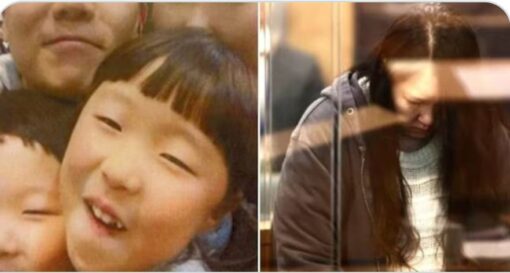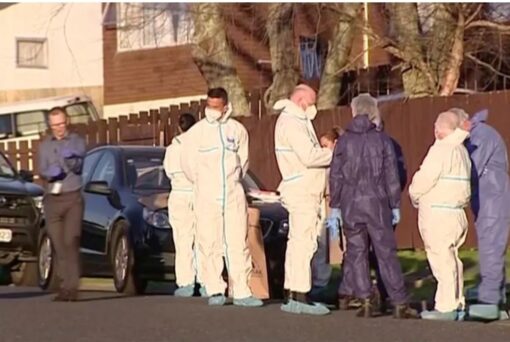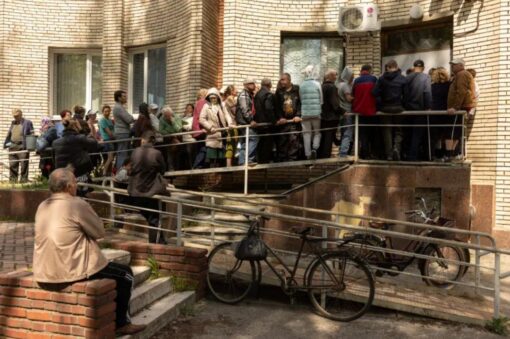A New Zealand court has delivered a chilling verdict in a case that has shocked the nation and attracted global attention, finding a woman guilty of murdering her two young children and concealing their remains in suitcases.
Prosecutors argued that the mother deliberately carried out the killings before storing the bodies in luggage, which was later discovered by an unsuspecting family who had purchased the bags at an online auction.
The case, which stretched across years of investigation, has now reached its grim conclusion with the ruling that the New Zealand mother guilty verdict was supported by overwhelming evidence.

The crime came to light in 2022 when a family in Auckland purchased several items, including the suitcases, from a storage facility auction.
Upon opening the bags at their home, they made the horrifying discovery of the remains of two children. The revelation sent shockwaves across New Zealand, with police quickly launching a homicide investigation that gripped the public and made international headlines.
Authorities confirmed that the bodies had been hidden for years before being found, sparking urgent efforts to track down the person responsible.
Police eventually traced the case back to the children’s mother, who had relocated to South Korea in the aftermath of the killings. Working closely with international agencies, New Zealand authorities issued a request for her extradition.
She was located and arrested by South Korean police in 2022, living quietly in Ulsan, before being returned to New Zealand to stand trial. Her capture was seen as a major breakthrough in one of the country’s most disturbing criminal cases in decades.
During the trial, prosecutors laid out a harrowing account of how the mother carried out the murders. They presented forensic evidence, including DNA testing and records from the storage unit, which tied her directly to the crime.
The court heard that the children were killed in 2018, though the motive remains unclear. The prosecution argued that financial strain, emotional instability, and family disputes may have played a role, though no clear explanation could ever justify such an act.
“The actions taken by the defendant were calculated, deliberate, and cold,” said lead prosecutor Gareth Thomas. “She not only took the lives of two innocent children but then went to extraordinary lengths to conceal the crime and evade justice.”
The defense attempted to argue that the mother had suffered from significant mental health issues at the time of the killings and that she should be shown leniency.
Her legal team suggested that she had been overwhelmed by personal difficulties and was not fully in control of her actions. However, the jury ultimately rejected these claims, siding with the prosecution’s argument that she knew what she was doing and acted with intent.
Emotional scenes played out in the courtroom as the verdict was read. Family members of the victims wept openly, expressing relief that justice had finally been served after years of uncertainty.
“We have waited so long for this day,” one relative said outside the courthouse. “Nothing will bring back the children, but at least now we know the truth has been acknowledged.”
New Zealand’s police commissioner praised the tireless work of investigators who pieced together the complex case, which spanned multiple countries and years of unanswered questions.
“This was one of the most challenging and heartbreaking investigations our officers have ever faced,” he said. “The resilience of our team, coupled with international cooperation, ensured that justice was done.”
The guilty verdict has sparked a national conversation about child protection, family violence, and mental health in New Zealand. Advocacy groups say the case underscores the urgent need for better support systems for vulnerable families.
“This tragedy forces us to confront uncomfortable questions about how children slip through the cracks,” said Angela Wright, a child welfare advocate. “We must strengthen the safety nets that could prevent cases like this from ever happening again.”
The case has also resonated internationally, with many shocked by the gruesome details of the discovery. Media outlets around the world covered the trial closely, and the revelation that the bodies were found only because the suitcases were sold at auction added to the horrific nature of the story.
Legal experts say the trial demonstrates how modern forensic science and global cooperation can ensure accountability even when crimes cross borders.
For the people of New Zealand, the crime has left an indelible scar. The image of two young lives cut short and hidden away for years has been described as one of the darkest moments in the country’s recent history.
Prime Minister Christopher Luxon called the case “deeply disturbing” and said it highlighted the importance of investing in both law enforcement resources and community-based mental health programs. “We must do everything possible to protect our most vulnerable citizens—our children,” he said.
The sentencing phase of the trial is expected to follow in the coming weeks, with prosecutors indicating they will seek a life sentence without parole for the mother.
Legal commentators believe the judge is likely to impose one of the harshest penalties available under New Zealand law, given the calculated nature of the crime and the suffering caused to the victims’ family.
“This is a case where the community will expect the maximum possible punishment,” said Professor James Holloway, a legal scholar at the University of Otago.

In the aftermath of the guilty verdict, public grief has mingled with outrage. Candlelight vigils were held in several cities to honor the memory of the children, with participants calling for greater awareness of child abuse and stronger safeguards.
Social media has also been flooded with messages of support for the victims’ relatives, many using the hashtag #JusticeForTheChildren to express solidarity.
The New Zealand mother guilty ruling marks the end of a long and painful chapter, but it cannot erase the tragedy that occurred. For many, the case stands as a grim reminder of how hidden violence within families can lead to unimaginable outcomes. It has also sparked renewed determination among policymakers, activists, and citizens alike to ensure that no child suffers in silence.
As the nation comes to terms with the shocking details, there is widespread recognition that justice, while necessary, can never fully heal the wounds left by such an atrocity.
The guilty verdict provides closure, but it also leaves behind haunting questions about how and why such a crime was allowed to unfold. For New Zealand, the hope is that lessons learned from this devastating case will drive lasting change to protect children and prevent similar tragedies in the future.


